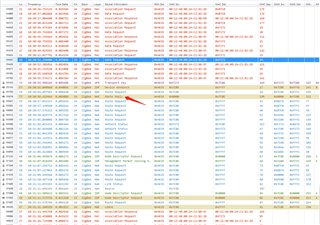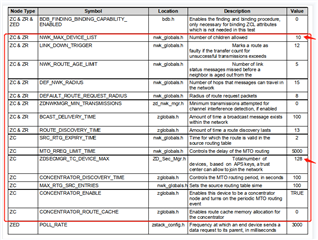Other Parts Discussed in Thread: Z-STACK
A customer is using CC2652P as ZNP to build a network containing 80-90 nodes. In the test it is found that some of the ZDO messages including Node Descriptor Response and Active Endpoints Request were not able to be sent to the air from the ZNP. Tracing the code they found that ZDO_ProcessNodeDescReq is called and AF_DataRequest returned a status = 0 through the path ZDO_ProcessNodeDescReq -> ZDP_NodeDescMsg -> fillAndSend -> AF_DataRequest. But the Node Descriptor RSP never appeared in the sniffer log.
Any idea about the possible cause of this?

Best regards,
Shuyang





